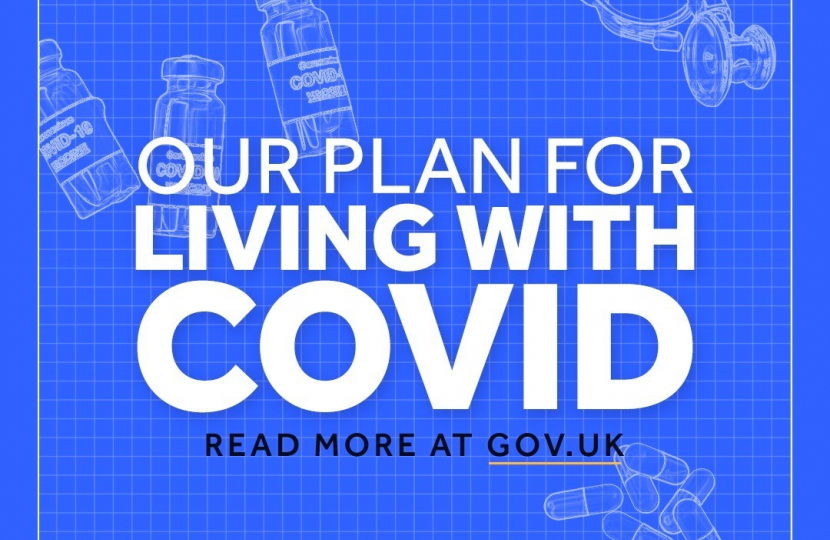
From 24 February in England, all domestic restrictions in law have been lifted, removing the legal requirement to self-isolate following a positive coronavirus (COVID-19) test and also ending routine contact tracing. Close contacts who are fully vaccinated will no longer have to test daily for 7 days, while unvaccinated close contacts will not be required to self-isolate. However, staying at home and avoiding contact with others is still the most effective way to avoid passing on COVID-19 if you are infected. The government has set out full, updated advice on what to do if you test positive for COVID-19.
The vaccines that have been such an extraordinary success for the UK remain the first line of defence in the Government blueprint for living with and managing Covid, and continue to be a focus of investment and research. The UK was the first country in the world to administer an approved vaccine, the first European nation to protect half the population with at least one dose, and the first major European nation to boost half the population.
In England, over 31 million boosters have been administered – a figure that rises to almost 38 million UK-wide, helping break the link between infection and hospitalisation. Cases, hospitalisations and deaths continue to decline in England, with boosters offering strong protection against severe illness and hospitalisation.
Commenting on the news, Richard Fuller MP said:
From the brilliant early investment in vaccines, to the nationwide early vaccine rollout, to the decision last Summer to loosen restrictions and again in December last year to stick with Plan B amid the widespread calls for tougher measures, the Prime Minister has got the big calls right.
The Prime Minister announced the relaxation of all remaining statutory restrictions but importantly kept in place a range of support for those most vulnerable to Covid.
A welcome day as the U.K. becomes the first major European country to restore freedoms.
Last week, the Prime Minister set out the government’s plan for removing the remaining legal restrictions while protecting people most vulnerable to COVID-19 and maintaining resilience. The Living with Covid Plan can be read here. The plan covers four main pillars:
- Removing domestic restrictions while encouraging safer behaviours through public health advice, in common with longstanding ways of managing other infectious illnesses
- Protecting the vulnerable through pharmaceutical interventions and testing, in line with other viruses
- Maintaining resilience against future variants, including through ongoing surveillance, contingency planning and the ability to reintroduce key capabilities such as mass vaccination and testing in an emergency
- Securing innovations and opportunities from the COVID-19 response, including investment in life science
The guidance has also been removed for staff and students in most education and childcare settings to undertake twice weekly asymptomatic testing and on 24 March, the Government will also remove the COVID-19 provisions within the Statutory Sick Pay and Employment and Support Allowance regulations. From April, the Government will update guidance setting out the ongoing steps that people with COVID-19 should take to be careful and considerate of others, similar to advice on other infectious diseases. This will align with testing changes which that from 1 April, the Government will no longer provide free universal symptomatic and asymptomatic testing for the general public in England.

